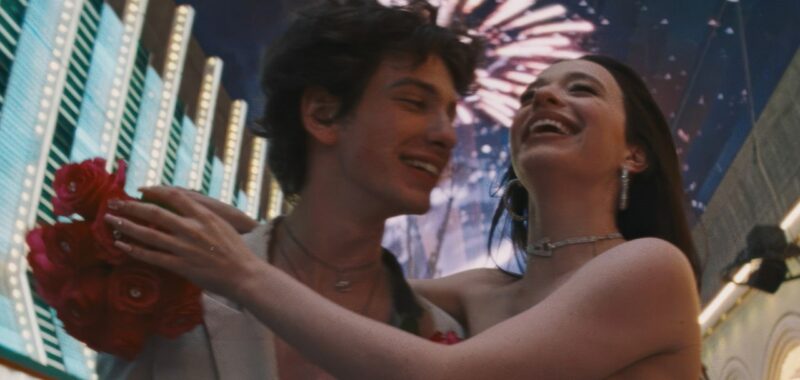Firstly, Ani and Igor spend a final evening together in Vanya’s parents’ mansion, before leaving when the banks open in the morning to collect Ani’s annulment fee. They share a little conversation; Ani scoffs that he probably wanted to rape her, because he has ârape eyes,â but he wouldn’t do it anyway, because he isn’t man enough. Igor is bewildered. Then, the next morning, after they pull up at Ani’s house, he produces the expensive wedding ring that Vanya had bought her. Another commiseration prize, sure, but one of two genuinely kind things that someone does for her in the entire movie, the other being when Igor stood up for her at the Vegas marriage office and insisted that Vanya apologize for what he put her through.
Her response is to climb on top of him, and they have quiet, emotionless sex. It’s a strange twist that I read as Ani’s attempt at reclaiming some sense of power; Ani uses sex to dominate men throughout Anora, be it the strip club clients she lures into spending hundreds of dollars on VIP lap dances, or indeed Vanya, who is ensnared by the fantasy she promises (until it all goes to shit). But when Igor tries to kiss her, she resists, before breaking down in tears, collapsing into his arms. Then the credits roll, accompanied solely by the sound of the car‘s windshield wipers. It’s an abrasive ending that left me feeling emotionally short-changed in the immediate aftermathâ walking out of my Sunday night screening, I overheard another audience member say something along the lines of, âThe movie was great, but that ending was so awkward!â Which is true: it does feel awkward, and I’m sure that’s the intent. But right up until the end, I had willed Anora to give its titular hero the W she deserved.
Well, she does get little wins along the way: Igor’s empathy, the money, the wedding ring. Perhaps what Baker wants to challenge is our own naivety, and how movies have conditioned us to expect the romantic finaleâeven if we know that, in real life, it rarely happens like that. Does that excuse the fact that it leaves you feeling a little empty at the end? Perhaps it’s just in the eye of the beholder. Madison described the ending as a âRorschach testâ in conversation with The A.V. Club: âI’ve heard so many different interpretations, from very cynical to very romantic,â she said. For his part, Baker has said that it’s deliberately open to interpretation, while declining to offer his take (as filmmakers often do). But whether you love it or hate it, that Anora ends on such an abrasive note seems to be the point.
This story originally appeared in British GQ.

